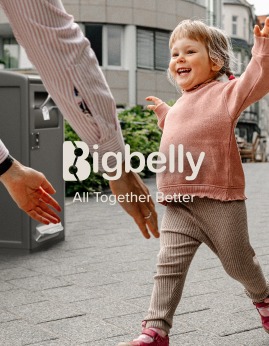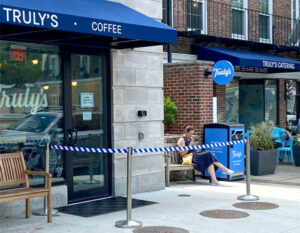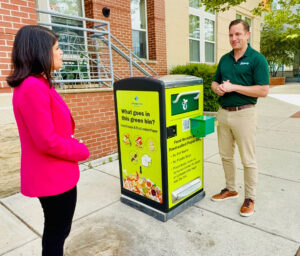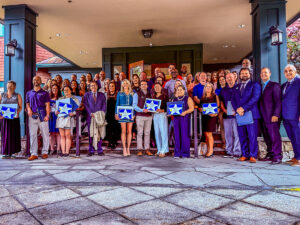The Winter Issue of Babson Magazine featured alumni entrepreneurs tackling trash-related topics with their businesses. Bigbelly and founder Jim Poss were one of the featured companies.
 Walking on Charles Street in Boston, Jim Poss, MBA’03, noticed how every weekend the garbage cans were overflowing with trash. One day, as he watched a dump truck stop every 100 feet to empty the bins, idling and spewing black smoke as it started up again, an idea struck him. Why not compact the trash in the bin? Increased capacity would equal fewer pickups and less garbage truck fumes.
Walking on Charles Street in Boston, Jim Poss, MBA’03, noticed how every weekend the garbage cans were overflowing with trash. One day, as he watched a dump truck stop every 100 feet to empty the bins, idling and spewing black smoke as it started up again, an idea struck him. Why not compact the trash in the bin? Increased capacity would equal fewer pickups and less garbage truck fumes.
With a background in the electric-vehicle and solar-power industries, Poss immediately convinced himself that a simple solar panel could power a small motor operating the compactor. He ran some numbers and decided, “I can do this.” A little research uncovered an industry that burns billions of gallons of diesel fuel each year. “It didn’t take much of a spreadsheet to figure out if you displace collection a couple of times a week, this could work,” says Poss. Thus began BigBelly Solar (originally Seahorse Power Co.), manufacturer of solar-powered, networked trash and recycling compactors.
As a student at Babson, Poss actually had two other ideas for companies, one for an offshore wind plant and the other for wave and geothermal energy. “Given my stature at the time, I had no credible, viable plan to start a billion dollar company,” says Poss. “But I was pretty sure I could make a solar-powered trash compactor for 10,000 bucks.”
The first BigBelly cans were boxy, too big, and had some sharp corners. But Poss was able to make 750 cans to test his theory without investing too much. He then used feedback to improve the next model. “We had a better understanding of the system and how far we could push it,” he says. “We sunk a couple million bucks into the next generations.”
As Poss learned more about the industry, he discovered a bigger problem that he hadn’t foreseen: Trucks running routes to cans that weren’t yet full. “About 20 percent of cans are full, but 80 percent aren’t,” says Poss. “You’re sending a truck out there with a couple of guys, and it stops and starts, no matter what’s in that bin. It costs money. If you do that five to seven days a week, the numbers add up real fast.”
To solve the problem, Poss’ team developed a network and online management system that tells users when a can needs emptying. Compacting trash lowered collections; picking up only when necessary brings that number down even further. To round out its offerings, BigBelly added cans for recycling about four years ago and, just recently, cans for composting. Sustainability carries over into the production of BigBelly bins, as the cans are manufactured in the U.S. and their exteriors are made from recycled U.S. steel and plastics.
Poss cites Philadelphia as a city that realizes more than $900,000 annually in savings since switching to the BigBelly system. Part of that comes from recycling efforts: By diverting about 23.5 tons of materials from landfills each month, the city is not only helping the environment but also saving about $2,600 a month. Word has spread and BigBelly works with hundreds of municipalities, colleges, and universities. “People talk about making a difference in the world, and in the grand scheme of things, what we’re doing is small compared to some problems. But to change something from being tremendously inefficient and wasteful to a lot better feels really good,” says Poss. “I love touring through cities and finding the BigBelly.”
Read the full story on the Babson College Website



